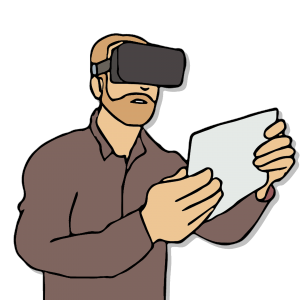Hello and welcome back to the blog! I hope you enjoyed last weeks blog about how I teach and what online platform I use.
This week I thought we would look more closely at other forms of online education and discuss them.
Now when I went to school, you went to school with people in your town, I believe it was called a catchment area? Anyway, today I teach children from all over the world! I know, crazy! I am responsible for children’s education all over the world. Selwyn (2010) suggested that technology-based learning can be a clear focus for the expansion of it within schools as it can be seen as being intellective and give individual freedom. He was absolutely right even in 2010, technology today, does give students the freedom to log on where ever they want, they do there work and then log back off.
How did we get to this?
Well, a professor named Agarwal (2013) commented on a TED talk that classrooms hadn’t changed and that the last educational advancement was the printing of textbooks and the classrooms hadn’t changed how the looked either. Now, today we don’t necessarily use classrooms or textbooks anymore. Education today is different and some may argue that education has changed. However, was this for the best?

As a globe, we had a real issue with children accessing education. Selwyn (2016) comments on the education being ‘broken’ in 2016 as teaching lacked creativity, the contents of the curricula were traditional and the rate of truancy among students increased. However, other problems that the old education system presented was, children in the west of the world received a good education with; resources, qualified teachers and a curriculum among many other things. Children in countries such as Africa, India and many indigenous cultures did not and this created an unequal society. Well today, children all over the world are receiving an education from teachers that is fair, knowledgeable and allows them to be successful.
Individuals then recognised this inequality and online courses such as MOOCs (Massive open online courses) became increasingly popular in the 21st century mainly within universities. Tomte (2018) commented on this type of online learning as being helpful to students, as they create better learning environments for enhancing interventions and resources. Just like the flipped classroom approach, MOOCs also operates online, uploading lectures, worksheets and allowing students to be collaborative online. Although MOOCs still educates young adults all over the world and the rate of enrolment increases rapidly as more people use online education to learn certain courses (Tomte (2018). Recently, these online courses have begun to expand to primary and secondary school, as well as these schools set up their own classrooms online. This is then where my teaching comes in.
When people ask me ‘well how many students do you teach?’ the growth rate of these courses grew from 23 million in 2016 to 81 million in 2018 (Mooc report 2018) to almost everyone using them today. So the answer is often I couldn’t give you a clear answer, children are constantly enrolling and sadly dropping out. That is another side to having this job my students change all the time, which I will come onto later in next weeks blog ‘How well do I know my students?’

Like most things, there are downfalls to online education.
The researcher, Tomte (2018) suggested that more in-depth research needed to be done to look at the quality of these courses and their development. This then suggested that online courses do have their issues, and yes they do have their faults even today. As everyone is now wanting to be online and learn that way, professors and teachers don’t have the time to set up courses, meaning that sometimes they are rushed and problems do arise from them. However, the news says that more research is being done, so hopefully, in a few years, these problems will be cleared up.
That’s all for this blog, sorry it’s so long!
Next week, I will talk to you about how well I know students.
cya,
thefutureofeducation.